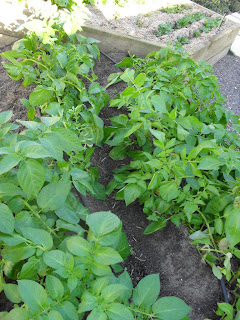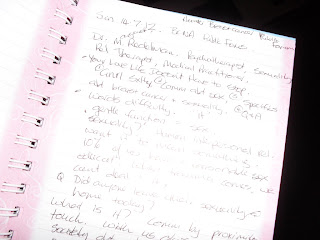Everyone we meet lately is talking about Breaking Bad, except for someone last night at uke group who said, What's that?
My response was, Where have you been hiding?
Reactions are mostly enthusiastic and animated, but there is also a less dominant theme of moral repugnance running through reactions as well which I completely understand. I'm sure this moral tension has been deliberately designed by the producers, as it provides a large part of the hook which strongly attracts avid watchers of this confronting series.
The term 'moral values' may not fit comfortably in the same sentence as 'breaking bad' but indulge me here.
Moral Value 1: Loving your family includes risks, commitment and respect
There's no denying that Walt loves his family to bits and wants the best for them. He is thinking beyond his own finite existence to the future of his loved ones and taking great risks to achieve them. Walt loves his extended family too, even though tensions run at varying degrees of intensity. His sister- and brother-in-law are present at family meetings, medical appointments and are involved in gut level dialogues. Walt operates his relationships with these people at an interesting level of transparency - in some areas.
Jessie is also considered 'family' in Walt's moral radar, as Walt is there in Jessie's darkest hours. They are honest with each other through wild and unchartered experiences which challenge the relational boundaries. But these very experiences lead them each to discover the value of what each other can contribute to the strange relationship between these unlikely partners.
Moral Value 2: We all want our contribution of skills & knowledge to be valued
Walt's job as a teacher is a worthy and prized role by many, but it doesn't push Walt's buttons. Walt is over-qualified, bored to death and unchallenged. An old tension between uni-friends of years before who had taken Walt's ideas and built an empire, leaving Walt out of the picture, has rubbed salt into his wound. Walt is battling an impending sense of failure. His family is broke. His wife is expecting. He works a second job washing cars at a car wash where many of his students get their cars washed. The whole thing is humiliating for Walt.
When Walt finds himself cooking crystal meth, and hating himself for it, he discovers something else unexpected. His expertise is highly valued. He has a reputation on the streets. His product is of the highest quality. His skills are in demand. This brings Walt an incredible sense of internal satisfaction. It feeds a hunger in Walt that cannot be denied any more. Years of demoralising grind and hard work as a teacher have brought him financial hardship and humiliation. But when he finds an outlet for his passions, Walt is a new man.
Moral Value 3: Live your own life
In a family conference, Walt expresses his feelings regarding his reluctance to accept treatment. He had never been able to make his own decisions, he explained. He had spent his life living other people's expectations. Now as he faces his mortality, Walt is tasting for the first time what it feels like to be his own man. He discovers how gutsy he can be. He can take risks, make his own choices and plan strategies which pay off.
When his health begins to show promise, Walt feels strangely sad that his reason for cooking has diminished. Walt is on a journey of self-discovery which is risky, dangerous as hell but also is the most exciting adventure. Walt is finding his own voice and tapping into his own vat of personal power. "I'm awake," he tells one person. Walt is no longer shackled by the template of expectations placed upon him by anyone. He is starting to live his own life.
Maybe it is a long bow to find moral values in such a series, but hey, don't we just love it anyway?
Comments welcome.










































